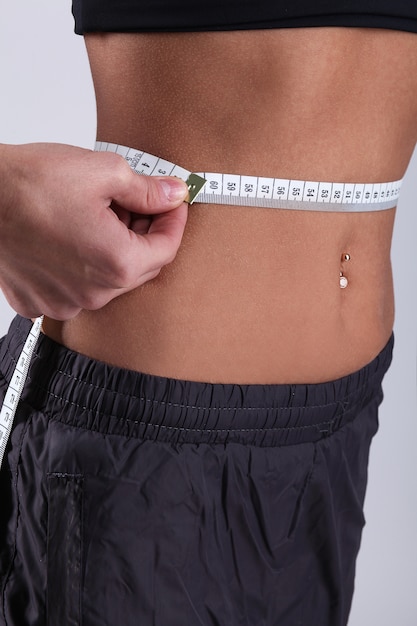
If you’re aiming to lose weight, you might think counting calories and eating less is the way to go. But that’s not necessarily true, says Terry Fairclough, a leading personal trainer and co-founder of Your Body Programme.
As a personal trainer, I’ve heard many opinions and questions about the best diet for weight loss. Should we be counting calories? How many should we eat? Should we go for low fat, low carb, or high protein? Should we be fasting, or eating small, regular meals throughout the day?
While all these approaches might have their place depending on body types, goals, and activity levels, one thing no one should do is under-eat.
We all know someone who starts counting calories and severely restricts their intake to get that beach-ready body – and yes, they might lose weight. But losing weight isn’t the same as losing fat, which is what most people really want.
Today’s Western diet is often larger than necessary. Many of us do need a slight calorie deficit because we tend to overeat. But under-eating isn’t the answer to weight loss.
When we eat, our body breaks down carbs into glucose, the main fuel for our cells. If we don’t use this glucose for energy, it’s stored in the muscles and liver as glycogen. For each glucose molecule stored, there are two to three water molecules attached. So when you cut calories, you’re losing stored carbs and water, not fat.
A long-term calorie deficit makes the body hold onto fat and break down protein instead. Protein is biologically active, meaning the more you have, the more fat you burn at rest. That’s why it’s important to eat enough calories with all three macronutrients – fats, carbs, and protein.
For those who think avoiding fat helps in losing weight, that’s a myth. Fat is a crucial, long-lasting fuel source, providing more than twice the energy of carbs or protein. It’s stored within muscle fibers and can be accessed during exercise. Without fat, you won’t have enough energy to burn the fat you want to lose.
Restricting calories and nutrients can also make you prone to deficiencies, affecting your immune, liver, and digestive systems, and leading to health problems and a slower metabolism. Health issues from under-eating include fatigue, malnutrition, osteoporosis, anemia, hormonal problems, and fertility issues.
An extreme calorie deficit stresses the body and increases cortisol levels, a stress hormone. This can initially cause weight loss, but chronic stress causes the body to hold onto fat and break down protein. This leads to a slower metabolism, increased belly fat, and potential thyroid problems.
Under-eating also impairs digestion, meaning you don’t absorb essential nutrients properly, affecting your training and results. It can also disrupt sleep, causing blood sugar levels to drop and waking you up, which then affects liver detoxification, immunity, exercise, and productivity.
Bodybuilding competitors often restrict calories to get lean, then increase them again after competing. However, this can cause illness if not done correctly. Chronic calorie cutting can slow your metabolism to the point where it feels impossible to lose weight, as any extra calories are stored as fat.
The key is to eat the right number of calories, carbs, fats, and proteins for your body type, goals, activity levels, height, weight, and age. The Your Body Programme (YBP) can help you figure out your calorie needs based on your body type.
Eating plenty of lean proteins, healthy carbs, and fats, while keeping overall calorie intake sufficient, has proven effective in losing fat. Lean proteins include beef, chicken, eggs, and fish, while good carbs come from fruits, vegetables, sweet potatoes, quinoa, brown rice, and whole wheat pasta. Healthy fats include avocados, nuts, seeds, olives, and olive oil.
Terry Fairclough, the co-founder of Your Body Programme, is also a personal trainer and nutritional therapist.




